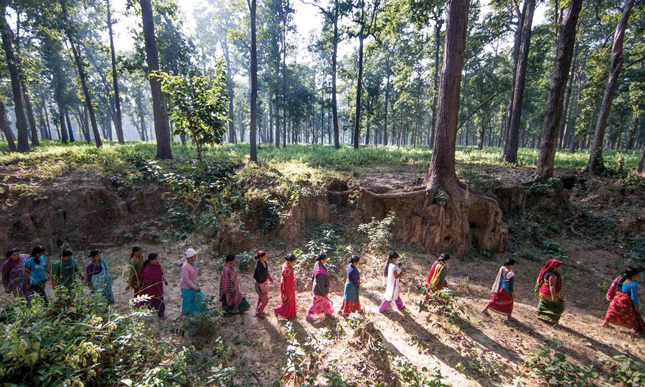-
Jill Schwartz, World Wildlife Fund
In Nepal, Community Health Workers Take on Conservation Too
November 12, 2014 By Wilson Center Staff
At high noon, Devi KC is still deep in the daily chores she started at sunrise: brewing tea and cooking a meal of rice, lentils and spinach for her husband and teenage son; pumping and hauling water from the nearby well; harvesting hay from her field; and sweeping road dirt from her front porch.
Despite a long mental list of tasks to complete before she goes to sleep at 10 p.m., Devi changes out of her well-worn green sari and plaid scarf and into a fresh dark-blue sari that shines in the light and sets her apart from others in her remote village. She grabs a small bag and walks with authority down a short, dusty dirt road to reach the home of a family in need of her help.
After meticulously washing her hands and forearms, she heads down the dark hallway of the home and enters the dimly lit bedroom of a tired-looking woman who has a tiny baby cradled in her arms.
Devi is there to do a basic checkup of the baby, whom she delivered a week earlier. Sitting on the edge of the bed, she takes the infant’s temperature, checks her heartbeat and examines her skin. All is well, she tells the mother, who smiles – momentarily – with relief. Devi, the mother of two grown children, can relate.
Helping others – young and old – get and stay healthy is only one of the responsibilities Devi has taken on in her village, where she serves as a community health volunteer. She is 35 years old, and one of approximately 50,000 people trained in the fundamentals of everything from sanitation and nutrition to modern hygiene.
Continue reading at the World Wildlife Fund.
Photo Credit: Women from Jalpa Bista’s group head into the forest to pull up invasive weeds, used with permission courtesy of James Morgan/WWF-US.
 A Publication of the Stimson Center.
A Publication of the Stimson Center.



